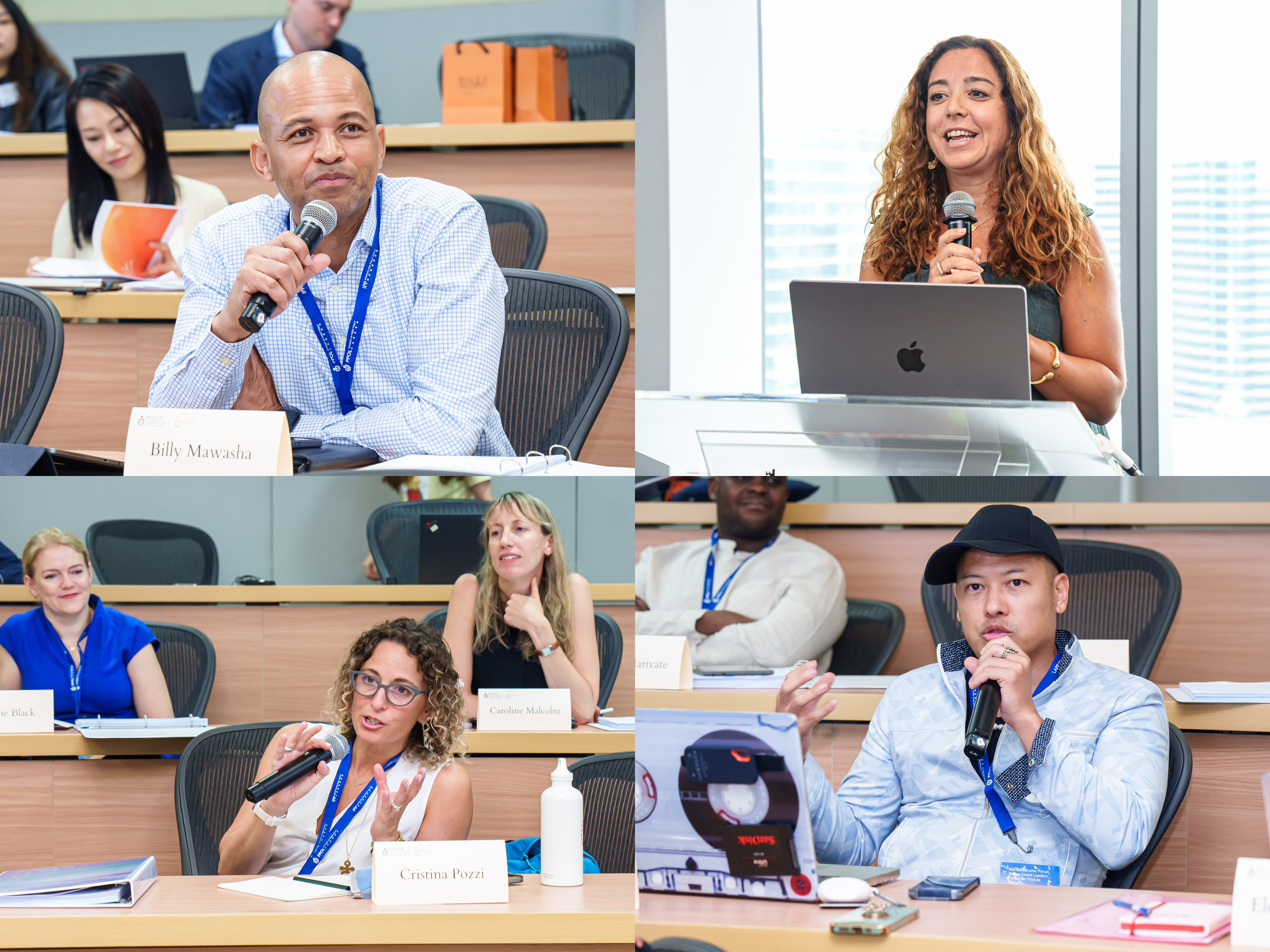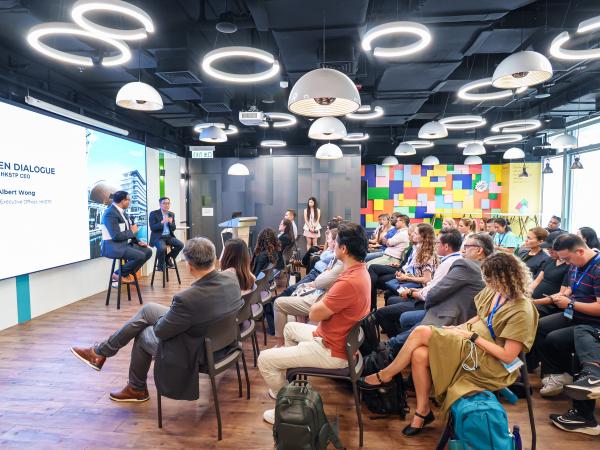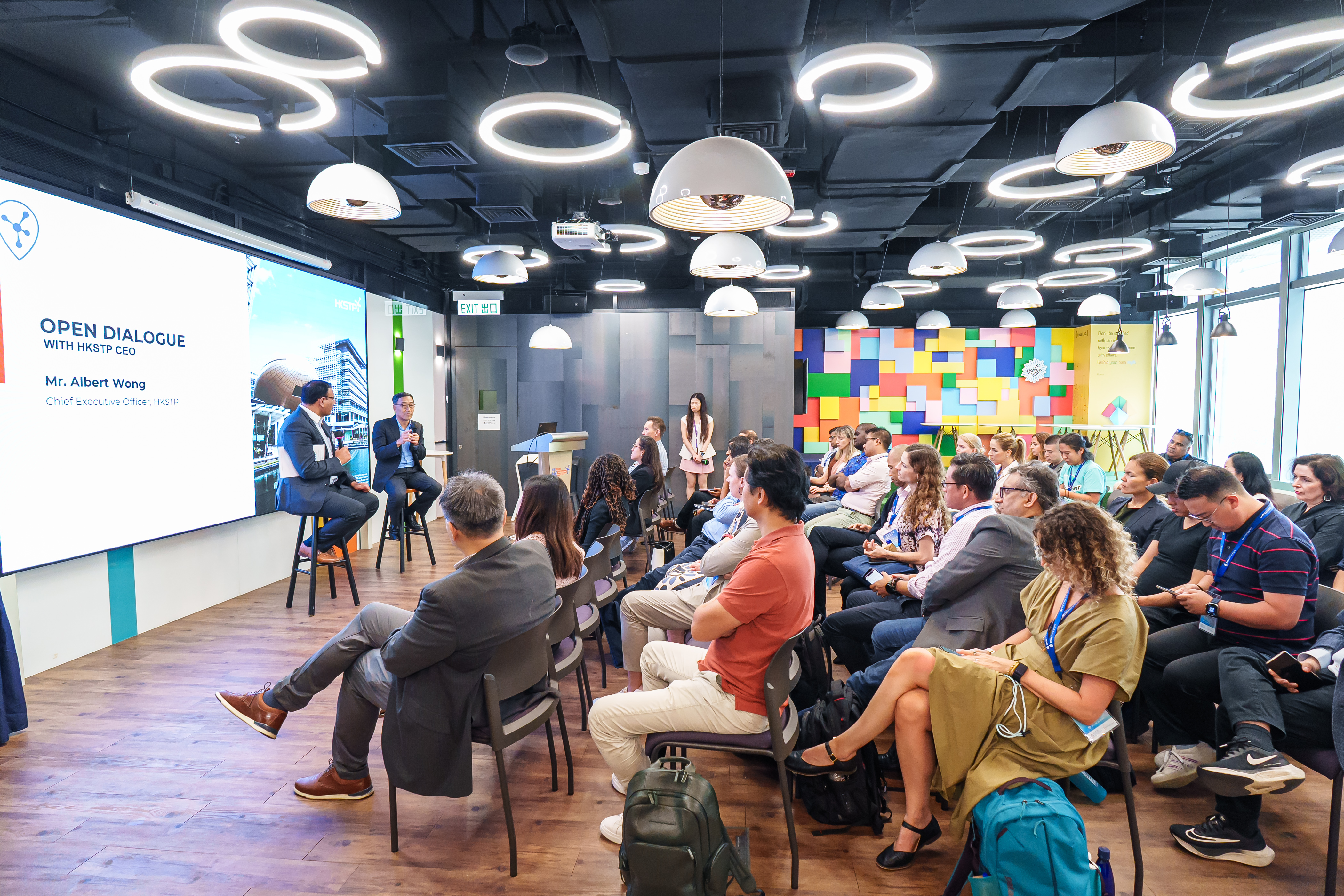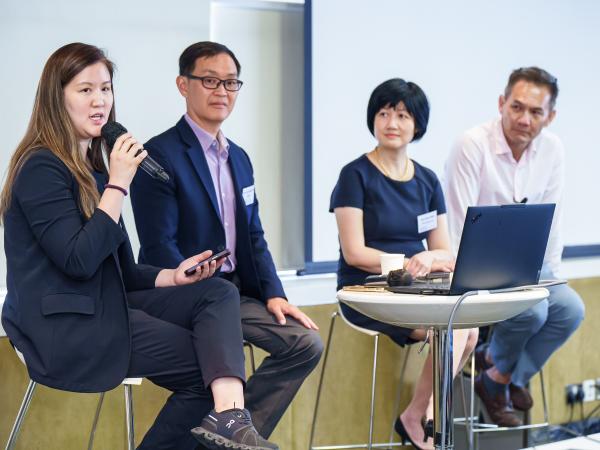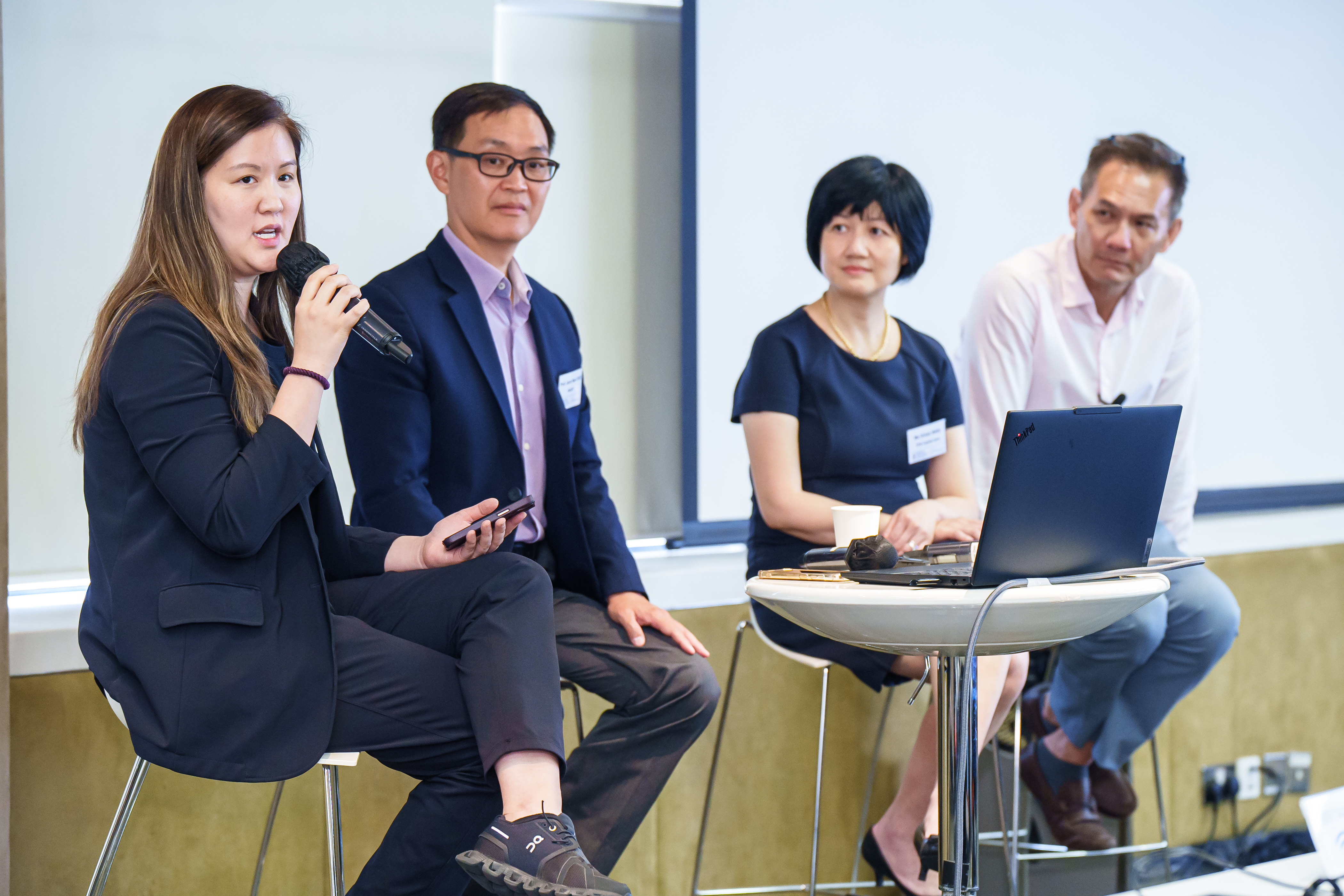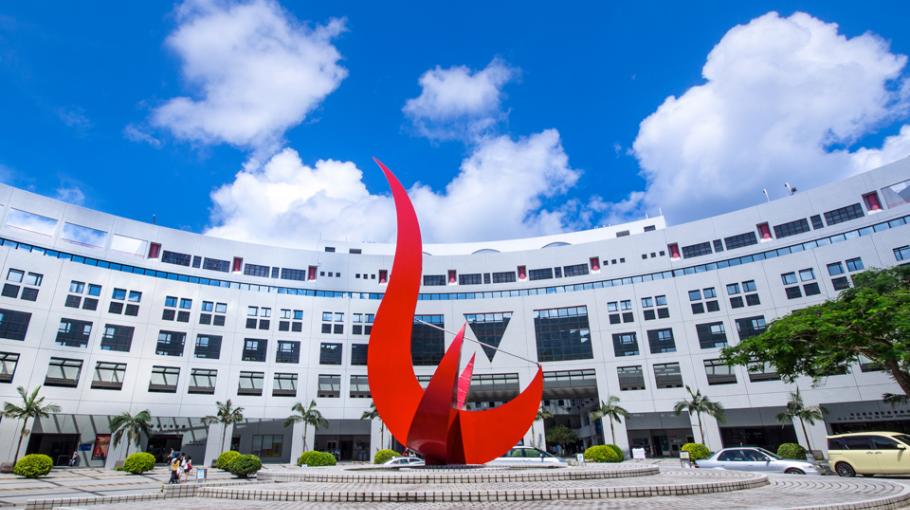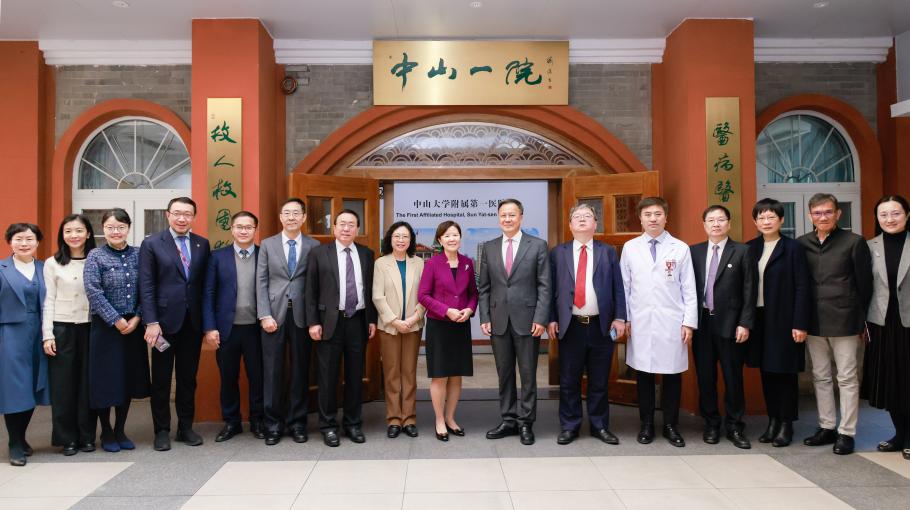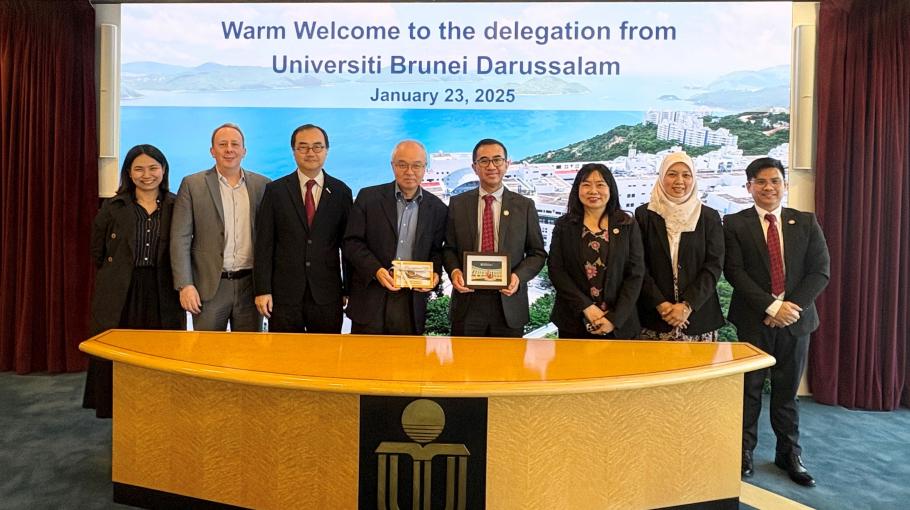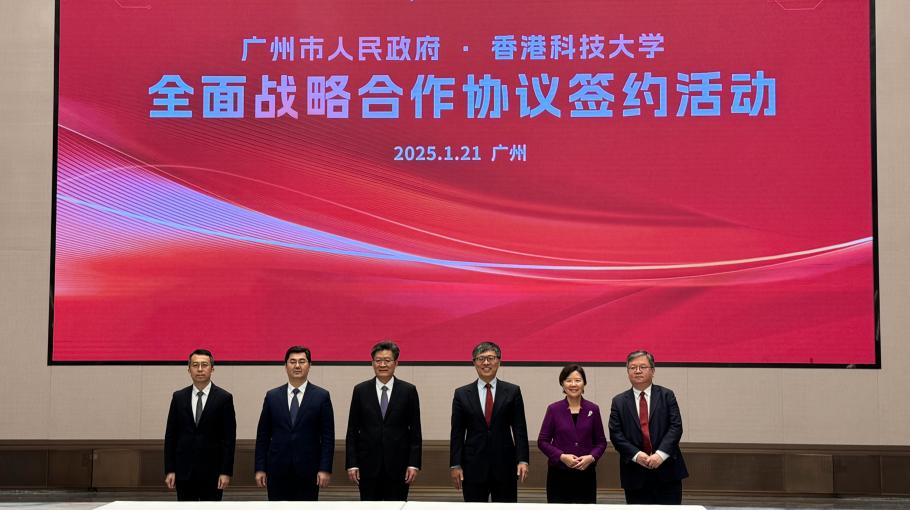In a remarkable gathering that echoed with ambition and innovation, the Hong Kong University of Science and Technology (HKUST) opened its door to the World Economic Forum’s Young Global Leaders (YGLs) Education Module 2024. HKUST stands alone as the first university in Greater China to organize this landmark event. Now in its second year, the five-day program offers a world-class platform for 34 trailblazing young leaders and entrepreneurs from 22 countries and regions – spanning Europe, North America, Latin America, Africa, and the Middle East – to engage in fruitful discussions on the evolving landscape of artificial intelligence (AI) with our faculty members and acclaimed scholars in this field.
As the event kicked off, HKUST President Prof. Nancy IP highlighted in the welcoming remarks the University’s pioneering role in leveraging the potential of AI, citing the innovative use of AI lecturers and HKUST GenAI to boost students’ learning effectiveness, while continuing to unlock AI’s potential to drive industries’ growth. “HKUST is at the forefront of exploring and harnessing the capabilities of AI across multiple disciplines such as education, healthcare, finance and environmental studies, paving the way for innovative solutions towards a sustainable future,” she said.
This year’s event featured the theme of “Our AI-Driven Futures”. One of the spotlights was the engaging fireside chat with Prof. Harry SHUM, HKUST Council Chairman and a luminary in computer science. Under the captivating theme of “Diving into the AI Frontier: The Future of Work”, Prof. Shum illuminated the opportunities and challenges presented by an increasingly automated future. Addressing his international audience from a mosaic of professions, from finance and technology, to media, education, and beyond, Prof. Shum provoked thoughtful conversations across sovereign AI, conversational human-computer interaction, AI’s influence on the job market and many more.
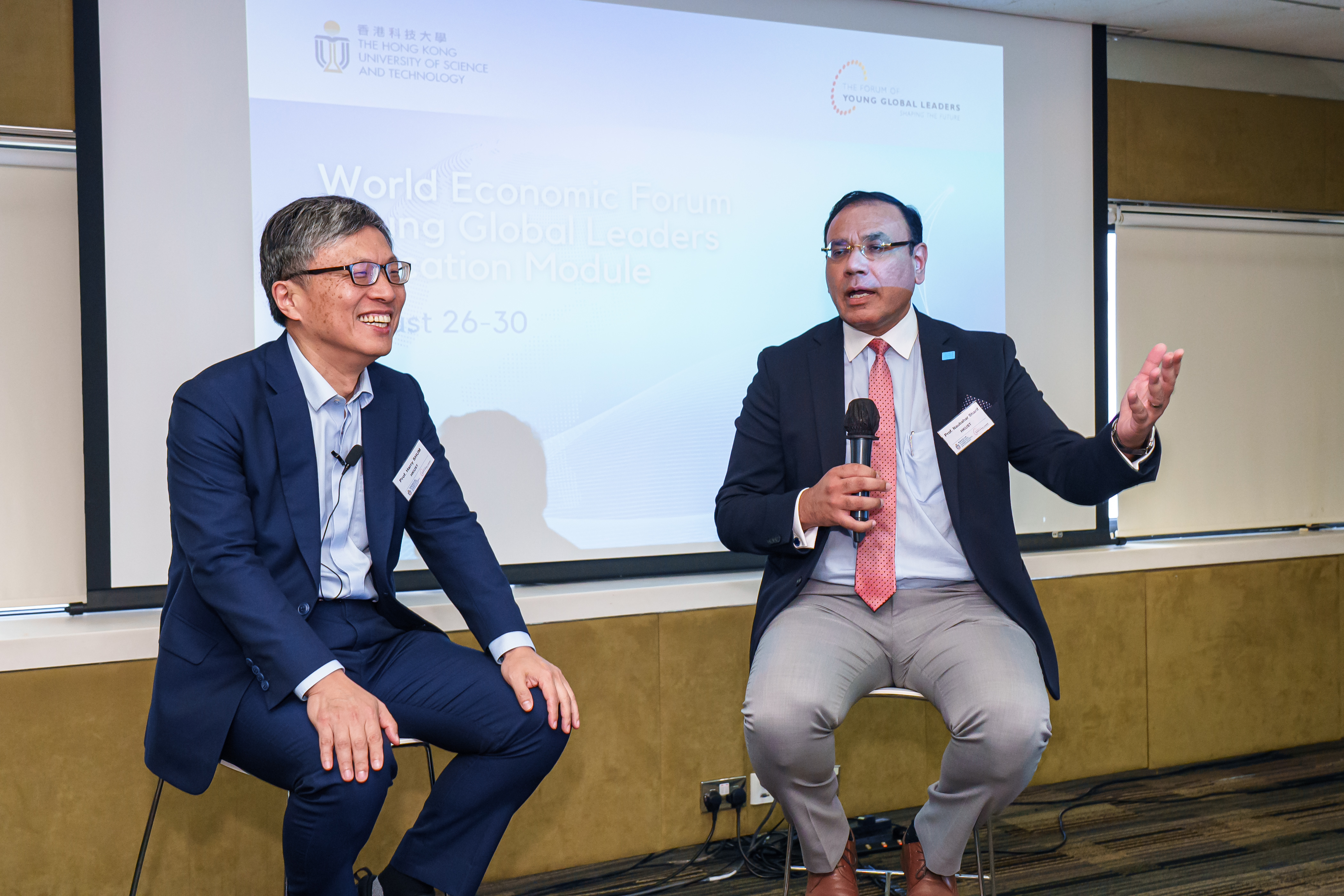
This course provided me with a thorough understanding of AI’s strengths and limitations, explored its evolving applications, and addressed legal and governance concerns I had in mind. The sessions on Mainland China and Hong Kong’s unique contexts delivered by HKUST’s eminent scholars, combined with learning from global peers, are truly enriching.
- Billy MAWASHA, CEO of Kolobe Nala Investment in South Africa
Blending AI with art and Web 3.0 development
With AI technologies unfolding new avenues for development opportunities across numerous areas, the sessions delved into how these advancements intersect with art and the emerging Web 3.0 landscape. As HKUST has established Hong Kong’s first Division of Arts and Machine Creativity (AMC) to take the lead of nurturing talents at the crossroads of art and technology,. HKUST Provost, Prof. GUO Yike elaborated his views in his session on “AI & Art”. During another session, Prof. WANG Yang, Vice-President for Institutional Advancement, took the stage to unpack the transformative potential of generative AI in driving digital economy and propelling the growth of Web 3.0.
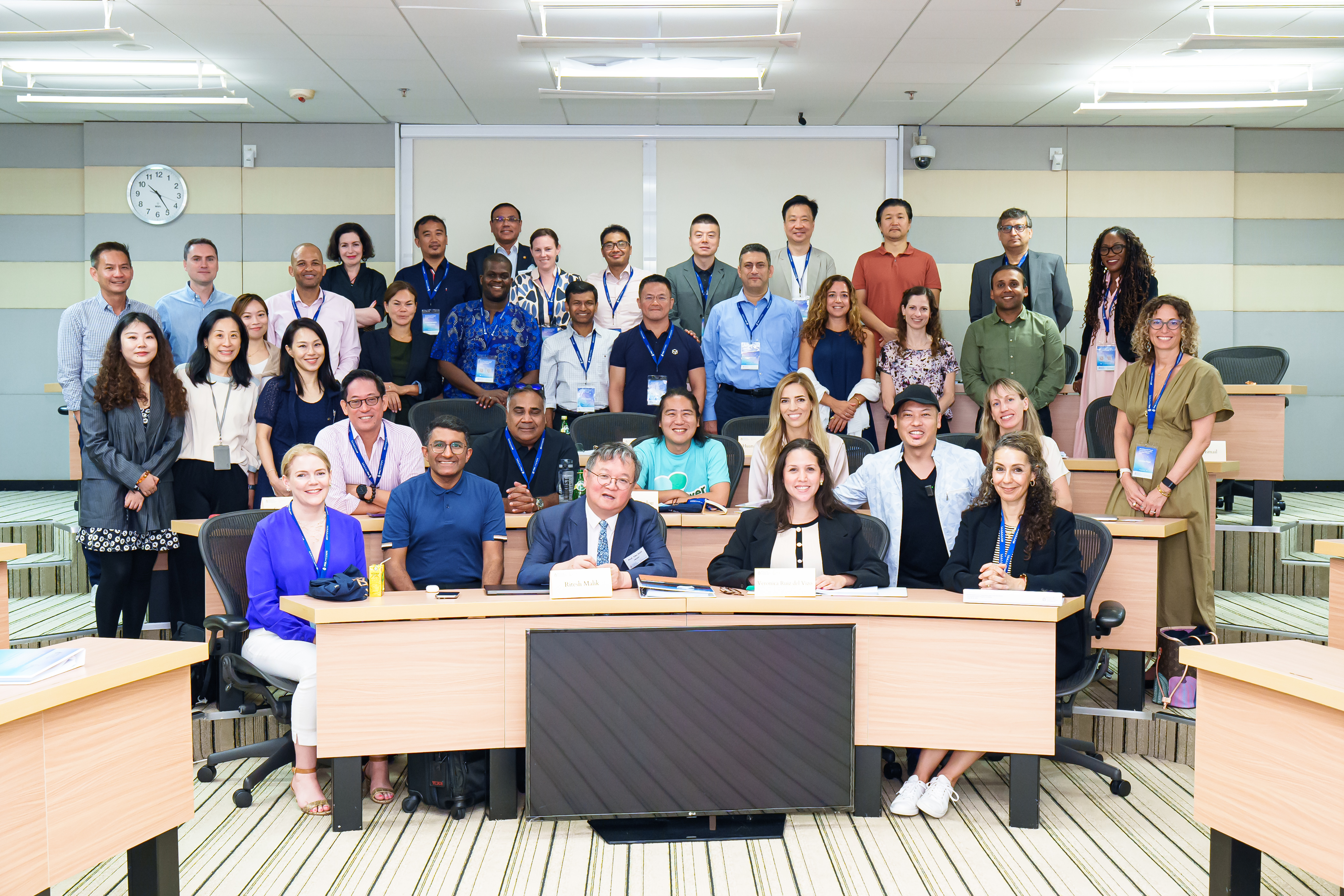
HKUST provided us with a deep understanding of the innovation ecosystem in China and Asia more broadly, and most importantly, with a space to discuss complex questions around geopolitics, ethics, and governance with leading academics and practitioners in the field. Mutual understanding is the first step towards collaboration, and Hong Kong is the right place to build much-needed bridges to address our shared challenges and ensure AI is deployed for the benefit of all.
- Marga Gual SOLER, Head of Science Diplomacy Capacity Building at the Geneva Science and Diplomacy Anticipator (GESDA) in Switzerland
While the University embraces AI in education, Dr. Sean McMINN, Director of HKUST’s Center for Education Innovation, went on to discuss and examine the implications of generative AI on education, focusing on how AI can be used in creative problem-solving to ensure that human insight remains central to a learning process.
The Education Module at HKUST offers a well-rounded exploration of various AI-related topics, emphasizing their impact on society. Additionally, the diverse international group of participants provided a unique opportunity to compare cultural perspectives on critical issues, enriching the experience. AI in education raises crucial questions about our future. Dr. McMinn sparked meaningful discussions and skillfully guided us through the complexities, offering valuable insights into balancing theory and practice to create an AI resilient and adaptive learning environment.
- Cristina POZZI from Italy, CEO and co-founder of edtech hub Edulia
In addition to the engaging sessions in this five-day inspiring journey, the YGLs had the unique opportunities to have enlightening dialogues with Hong Kong Science and Technology Parks Corporation (HKSTP) CEO Mr. Albert WONG, Hong Kong listed AI software company SenseTime, as well as AI companies founded by our HKUST alumni, such as Dayta AI, Neufast and WATI. These encounters showcased HKUST’s strong ties to the AI industry and the significant contributions of our alumni to the AI industry, leaving a lasting impression on the YGLs.
The deep dive discussions on technical, theoretical and real-world applications of artificial intelligence are a testament to HKUST’s position as one of the premier institutions incorporating cutting-edge technology into society.
- Dana LEONG, US Music Ambassador and two-time Grammy-winning artist
